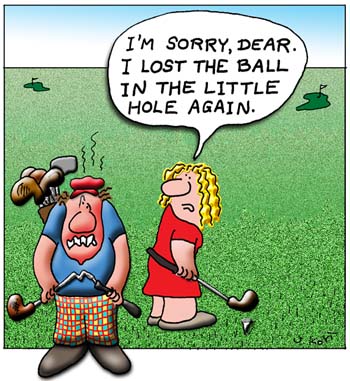 You better watch out or the Bogey Man’s gonna get you! The Bogey Man must have been a golfer, because he lent his name to a golf score of 1-over par.
You better watch out or the Bogey Man’s gonna get you! The Bogey Man must have been a golfer, because he lent his name to a golf score of 1-over par.
According to the USGA Museum, the “Bogey Man” was a character in a British song of the late 19th Century. He lived in the shadows and said in song, “I’m the Bogey Man, catch me if you can.”
The USGA writes that British golfers of the era began chasing the Bogey Man on the golf course, meaning chasing after the perfect score (catch me if you can).
An aside: Sure is strange how some words develop, isn’t it? Now back to the program …
Over time, the term “bogey score” came into usage – but it denoted a great score, not a poor one. In other words, it was interchangeable, at that time, with the word “par.”
In the early part of the 20th Century, however, par began to be applied to the ideal score of professional golfers, while bogey gradually became applied to recreational golfers. From there, it was a short leap to its current mean of a score of 1-over par.
As “par” became the accepted term for a good score on a hole, “bogey” was applied to the higher score recreational golfers might expect to achieve. (source)
Related posts
Golf Books #324 (Fix It Yourself: The Ultimate Guide to Correcting Your Golf Swing)
on Tuesday 17, DecemberA contemporary look at the most common faults that plague golfers today and the...
Golf Books #271 (Understanding the Golf Swing)
on Tuesday 11, AprilThis modern classic of golf instruction by renowned teacher Manuel de la Torre (the...

